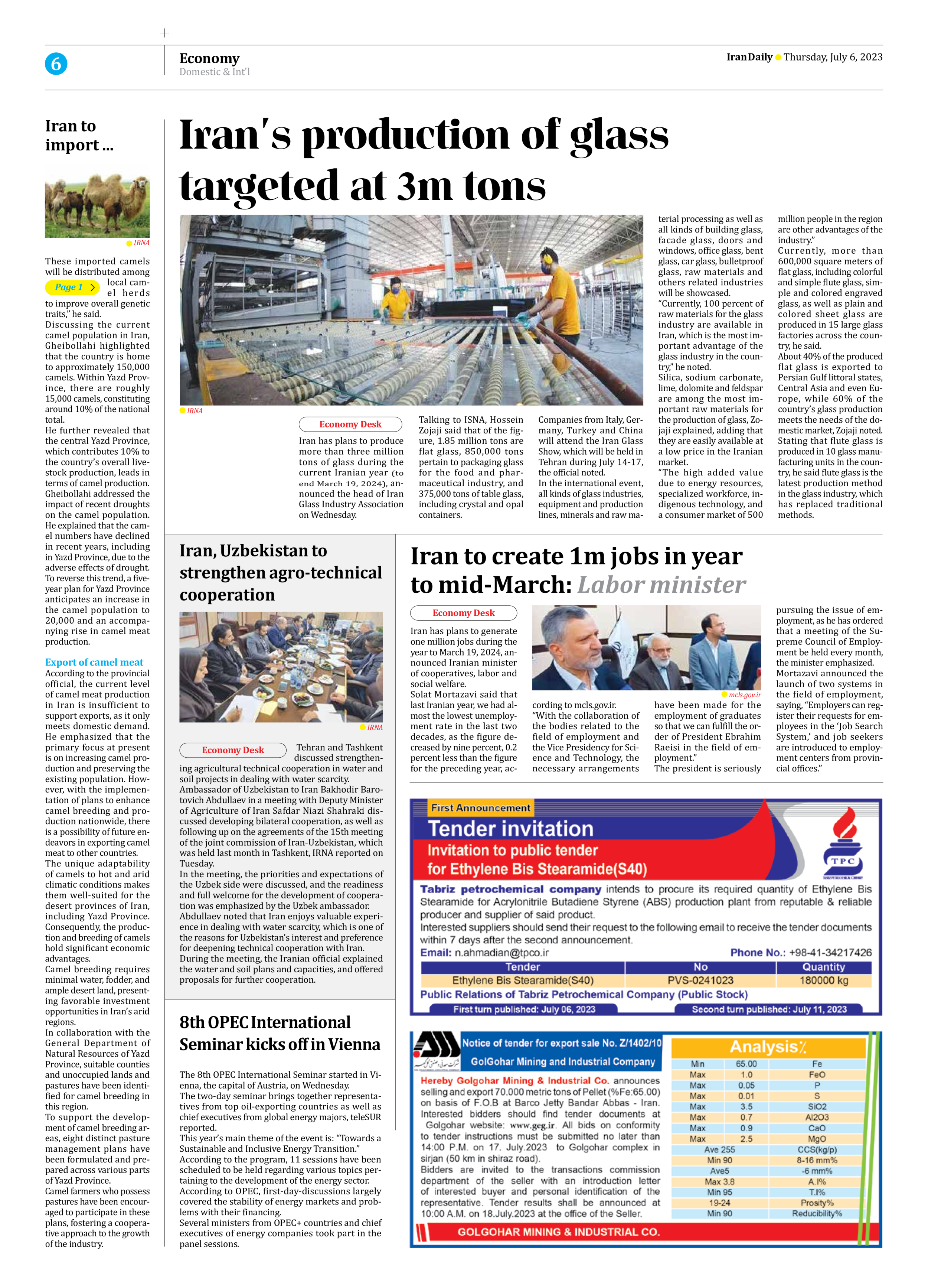
Iran to import ...
Page 1
These imported camels will be distributed among local camel herds to improve overall genetic traits,” he said.
Discussing the current camel population in Iran, Gheibollahi highlighted that the country is home to approximately 150,000 camels. Within Yazd Province, there are roughly 15,000 camels, constituting around 10% of the national total.
He further revealed that the central Yazd Province, which contributes 10% to the country’s overall livestock production, leads in terms of camel production.
Gheibollahi addressed the impact of recent droughts on the camel population. He explained that the camel numbers have declined in recent years, including in Yazd Province, due to the adverse effects of drought. To reverse this trend, a five-year plan for Yazd Province anticipates an increase in the camel population to 20,000 and an accompanying rise in camel meat production.
Export of camel meat
According to the provincial official, the current level of camel meat production in Iran is insufficient to support exports, as it only meets domestic demand. He emphasized that the primary focus at present is on increasing camel production and preserving the existing population. However, with the implementation of plans to enhance camel breeding and production nationwide, there is a possibility of future endeavors in exporting camel meat to other countries.
The unique adaptability of camels to hot and arid climatic conditions makes them well-suited for the desert provinces of Iran, including Yazd Province. Consequently, the production and breeding of camels hold significant economic advantages.
Camel breeding requires minimal water, fodder, and ample desert land, presenting favorable investment opportunities in Iran’s arid regions.
In collaboration with the General Department of Natural Resources of Yazd Province, suitable counties and unoccupied lands and pastures have been identified for camel breeding in this region.
To support the development of camel breeding areas, eight distinct pasture management plans have been formulated and prepared across various parts of Yazd Province.
Camel farmers who possess pastures have been encouraged to participate in these plans, fostering a cooperative approach to the growth of the industry.







